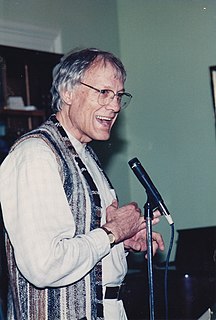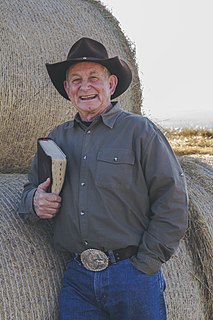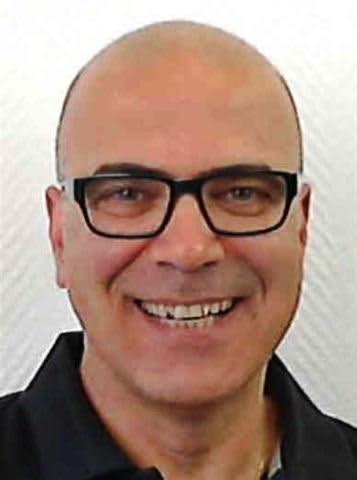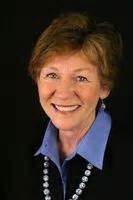A Quote by Eric Ludy
The principle is this: We must not allow anything into our life that feeds our point of weakness. A soldier doesn't dance through a mind field any more than we should play with a hand grenade. When the enemy's entry points are boarded up, it frees us to hear clearly the voice of our Commander.
Related Quotes
Before making peace, war is necessary, and that war must be made with our self. Our worst enemy is our self: our faults, our weaknesses, our limitations. And our mind is such a traitor! What does it? It covers our faults even from our own eyes, and points out to us the reason for all our difficulties: others! So it constantly deludes us, keeping us unaware of the real enemy, and pushes us towards those others to fight them, showing them to us as our enemies.
The gift our enemy may be able to bring us: to see aspects of ourselves that we cannot discover any other way than through our enemies. Our friends seldom tell us these things; they are our friends precisely because they are able to overlook or ignore this part of us. The enemy is thus not merely a hurdle to be leaped on the way to God. The enemy can be the way to God. We cannot come to terms with our shadow except through our enemies.
There are a lot of voices inside of us. We have the voices of our parents, our grandparents, our society, our bosses, our own should's and shouldn'ts, and our self-worth is in us, controlling us a lot. When we can get past all of those, and get to the deep, core part of us, there's a voice within our soul that I believe is connected to our Divine or Higher Self. That voice within is there to guide us through all aspects of our lives.
I believe that family is closer to God's heart than anything else, the support system he has given us to build us up in faith, and to support us when we falter. If we want our family lives to conform to God's will, Jesus must be our priority, our focal point, in our home as well as in our ministries.
That doesn't mean that it's always easy to live together: home can be the hardest place to live a Christian life. That's were people see us when we're tired and our defences are down.
More than anything else, kindness is a way of life. It is a way of living and walking through life. It is a way of dealing with all that is-our selves, our bodies, our dreams and goals, our neighbors, our competitors, our enemies, our air, our earth, our animals, our space, our time, and our very consciousness. Do we treat all creation with kindness? Isn't all creation holy and divine?
Why is fear part of earth life? Perhaps our Heavenly Father’s greatest hope is that through our fears we may choose to turn to Him. The uncertainties of earth life can help to remind each of us that we are dependent on Him. But that reminder is not automatic. It involves our agency. We must choose to take our fears to Him, choose to trust Him, and choose to allow Him to direct us. We must make these choices when what we feel most inclined to do is to rely more and more on our own frantic and often distorted thinking.
We deal with our mind from morning until evening. This mind can be our best friend or our worst enemy. We should do everything we can to improve outer circumstances - remedying poverty, inequalities, conflicts, and so on - while also doing our best to achieve a state of mind that give us the inner resources to deal with the ups and downs of life.
We are here to learn lessons and our birth chart tells us what our lessons are, what type of energy we possess in the first place, and how, by facing up to the challenges presented to us in life, spiritual growth will ensue. The birth chart is a 'tool' to guide us through our life. By understanding our basic make up, we can learn to make the most out of our positive points and try to improve on our weaker ones.
As brother stands by brother in distress, binding up his wounds and soothing his pain, so let us show our love towards our enemy. There is no deeper distress to be found in the world, no pain more bitter than our enemy's. Nowhere is service more necessary or more blessed than when we serve our enemies.
I have been a hundred times on the point of killing myself, but still was fond of life. This ridiculous weakness is perhaps one of our worst instincts. What can be more absurd than choosing to carry a burden that one really wants to throw to the ground? To detest, and yet to strive to preserve our existence? To caress the serpent that devours us, and hug him close to our bosoms till he has gnawed into our hearts?
I wish more of us could understand that our increasing isolation, no matter how much it seems to express pride and self-affirmation, is not the answer to our problems. Rather, the answer is a revival of our ancient commitment to God, who rules over all the peoples of the world and exalts no one over any other, and to the moral and spiritual values which were once legendary in America. We must reach out our hand in friendship both to those who would befriend us and those who would be our enemy.
We need to repent of the haughty way in which we sometimes stand in judgment upon Scripture and must learn to sit humbly under its judgments instead. If we come to Scripture with our minds made up, expecting to hear from it only an echo of our own thoughts and never the thunderclap of God's, then indeed he will not speak to us and we shall only be confirmed in our own prejudices. We must allow the Word of God to confront us, to disturb our security, to undermine our complacency and to overthrow our patterns of thought and behavior.
How do we allow God into our minds, bodies, relationships, and life? We stop squeezing the divine out through our preconceived notions of what is sacred and what is profane. When we assume the mind-set that everything is ultimately divine, though sometimes more disguised than others, then we can see that all of our thoughts, impulses, and desires arise from and can bring us back to awareness of the sacred.



































